Arbitel Plus 40 | Tablet | 10 pcs
৳ 125.00
Brand Name: Arbitel Plus Tablet
Generic: Telmisartan + Hydrochlorothiazide
40 mg+12.5 mg
Manufacturer: ACI Limited
Unit Price: ৳ 12.50 (3 x 10: ৳ 375.00)
Strip Price: ৳ 125.00
Indications
Telmisartan and hydrochlorothiazide is indicated for the treatment of hypertension, to lower blood pressure. Lowering blood pressure reduces the risk of fatal and nonfatal cardiovascular events, primarily strokes and myocardial infarctions. These benefits have been seen in controlled trials of antihypertensive drugs from a wide variety of pharmacologic classes including the classes to which this drug principally belongs. There are no controlled trials demonstrating risk reduction with Telmisartan and Hydrochlorothiazide.
Control of high blood pressure should be part of comprehensive cardiovascular risk management, including, as appropriate, lipid control, diabetes management, antithrombotic therapy, smoking cessation, exercise, and limited sodium intake. Many patients will require more than one drug to achieve blood pressure goals. For specific advice on goals and management, see published guidelines, such as those of the National High Blood Pressure Education Program’s Joint National Committee on Prevention, Detection, Evaluation, and Treatment of High Blood Pressure (JNC).
Numerous antihypertensive drugs, from a variety of pharmacologic classes and with different mechanisms of action, have been shown in randomized controlled trials to reduce cardiovascular morbidity and mortality, and it can be concluded that it is blood pressure reduction and not some other pharmacologic property of the drugs, that is largely responsible for those benefits. The largest and most consistent cardiovascular outcome benefit has been a reduction in the risk of stroke, but reductions in myocardial infarction and cardiovascular mortality also have been seen regularly.
Elevated systolic or diastolic pressure causes increased cardiovascular risk, and the absolute risk increase per mmHg is greater at higher blood pressures, so that even modest reductions of severe hypertension can provide substantial benefit. Relative risk reduction from blood pressure reduction is similar across populations with varying absolute risk, so the absolute benefit is greater in patients who are at higher risk independent of their hypertension (for example, patients with diabetes or hyperlipidemia), and such patients would be expected to benefit from more aggressive treatment to a lower blood pressure goal.
Some antihypertensive drugs have smaller blood pressure effects (as monotherapy) in black patients, and many antihypertensive drugs have additional approved indications and effects (e.g., on angina, heart failure, or diabetic kidney disease). These considerations may guide the selection of therapy
Telmisartan and Hydrochlorothiazide is not indicated for initial therapy for the treatment of hypertension
Telmisartan and Hydrochlorothiazide may be used alone or in combination with other antihypertensive agents.
Therapeutic Class
Pharmacology
Telmisartan: Angiotensin II is formed from angiotensin I in a reaction catalyzed by angiotensin-converting enzyme (ACE, kininase II). Angiotensin II is the principal pressor agent of the renin-angiotensin system, with effects that include vasoconstriction, stimulation of synthesis and release of aldosterone, cardiac stimulation, and renal reabsorption of sodium. Telmisartan blocks the vasoconstrictor and aldosteronesecreting effects of angiotensin II by selectively blocking the binding of angiotensin II to the AT1 receptor in many tissues, such as vascular smooth muscle and the adrenal gland. Its action is therefore independent of the pathways for angiotensin II synthesis.
There is also an AT2 receptor found in many tissues, but AT2 is not known to be associated with cardiovascular homeostasis. Telmisartan has much greater affinity ( >3,000-fold) for the AT1 receptor than for the AT2 receptor.
Telmisartan does not inhibit ACE (kininase II) nor does it bind to or block other hormone receptors or ion channels known to be important in cardiovascular regulation.
Blockade of the angiotensin II receptor inhibits the negative regulatory feedback of angiotensin II on renin secretion, but the resulting increased plasma renin activity and angiotensin II circulating levels do not overcome the effect of telmisartan on blood pressure.
Hydrochlorothiazide: Hydrochlorothiazide is a thiazide diuretic. Thiazides affect the renal tubular mechanisms of electrolyte reabsorption, directly increasing excretion of sodium salt and chloride in approximately equivalent amounts. Indirectly, the diuretic action of hydrochlorothiazide reduces plasma volume, with consequent increases in plasma renin activity, increases in aldosterone secretion, increases in urinary potassium loss, and decreases in serum potassium. The renin-aldosterone link is mediated by angiotensin II, so coadministration of an ARB tends to reverse the potassium loss associated with these diuretics. The mechanism of the antihypertensive effect of thiazides is not fully understood.
Dosage & Administration
Initiate a patient whose blood pressure is not adequately controlled with telmisartan monotherapy 80 mg: Telmisartan and hydrochlorothiazide 80 mg/12.5 mg once daily. Dose can be titrated up to 160 mg / 25 mg after 2 to 4 weeks, if necessary.
Initiate a patient whose blood pressure is not adequately controlled by 25 mg once daily of hydrochlorothiazide, or is controlled but who experiences hypokalemia with this regimen: Telmisartan and hydrochlorothiazide 80 mg / 12.5 mg once daily. Dose can be titrated up to 160 mg / 25 mg after 2 to 4 weeks, if necessary.
Telmisartan and hydrochlorothiazide may be administered with other antihypertensive drugs.
Interaction
Contraindications
Telmisartan and hydrochlorothiazide is contraindicated:
- In patients who are hypersensitive to any component of this product
- In patients with anuria.
- For co-administration with aliskiren in patients with diabetes
Side Effects
Telmisartan: Upper respiratory infection (7%), Urinary tract infection (l%), Back pain (3%), Diarrhea (3%), Myalgia (3%), Fatigue (1%), Sinusitis (3%), Peripheral edema (1%), Chest pain (1 %), Hypertension (1%), Dyspepsia (1%), Headache (1%), Dizziness (1%), Pharyngitis (1%)
Hydrochlorothiazide: Anorexia, Epigastric distress, Hypotension, Orthostatic hypotension, Photosensitivity, Anaphylaxis, Anemia, Confusion, Erythema multiforme, Stevens-Johnson syndrome, Exfoliative dermatitis including toxic epidermal necrolysis, Dizziness, Hypokalemia and/or hypomagnesemia, Hyperuricemia
Pregnancy & Lactation
Pregnancy Category D. Use of drugs that act on the renin-angiotensin system during the second and third trimesters of pregnancy reduces fetal renal function and increases fetal and neonatal morbidity and death. Resulting oligohydramnios can be associated with fetal lung hypoplasia and skeletal deformations. Potential neonatal adverse effects include skull hypoplasia, anuria, hypotension, renal failure, and death. When pregnancy is detected, discontinue Telmisartan and hydrochlorothiazide as soon as possible.
Nursing Mothers: It is not known whether telmisartan is excreted in human milk, but telmisartan was shown to be present in the milk of lactating rats. Thiazides appear in human milk. Because of the potential for adverse effects on the nursing infant, decide whether to discontinue nursing or discontinue the drug, taking into account the importance of the drug to the mother.
Precautions & Warnings
Use in Special Populations
Dose Adjustment For Hepatic Impairment: Initiate patients with biliary obstructive disorders or hepatic insufficiency under close medical supervision using the 40 mg/12.5 mg combination. Telmisartan and hydrochlorothiazide tablets are not recommended for patients with severe hepatic impairment
Use In Patients With Renal Impairment: Safety and effectiveness of Telmisartan and hydrochlorothiazide in patients with severe renal impairment (CrCl ≤ 30 mL/min) have not been established. In patients with severe renal impairment, Telmisartan and hydrochlorothiazide tablets are not recommended. No dose adjustment is required in patients with mild (CrCl 60 to 90 mL/min) or moderate (CrCl 30 to 60 mL/min) renal impairment.
Pediatric Use: Safety and effectiveness in pediatric patients have not been established.
Overdose Effects
Telmisartan: Limited data are available with regard to overdosage of telmisartan in humans. The most likely manifestations of overdosage with telmisartan are hypotension, dizziness, and tachycardia; bradycardia could occur from parasympathetic (vagal) stimulation. If symptomatiazc hypotension should occur, supportive treatment should be instituted. Telmisartan is not removed by hemodialysis.
Hydrochlorothiazide: The most common signs and symptoms observed in patients with a hydrochlorothiazide overdose are those caused by electrolyte depletion (hypokalemia, hypochloremia, hyponatremia) and dehydration resulting from excessive diuresis. If digitalis has also been administered, hypokalemia may accentuate cardiac arrhythmias. The degree to which hydrochlorothiazide is removed by hemodialysis has not been established. The oral LD50 of hydrochlorothiazide is greater than 10 g/kg in both mice and rats.
Storage Conditions
| Generic Name | Telmisartan + Hydrochlorothiazide |
|---|---|
| Tablet | 40 mg+12.5 mg |
Only logged in customers who have purchased this product may leave a review.

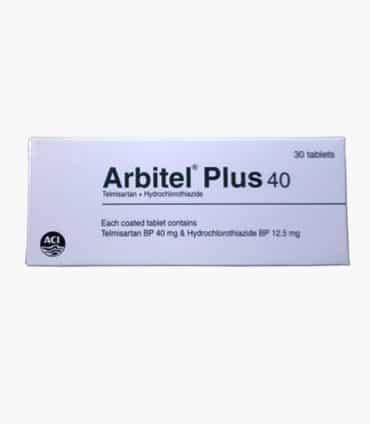
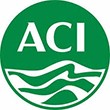

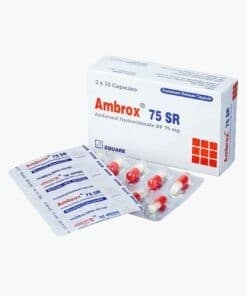
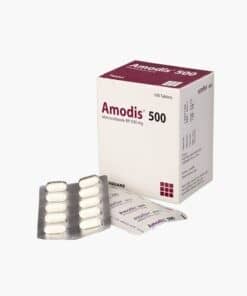
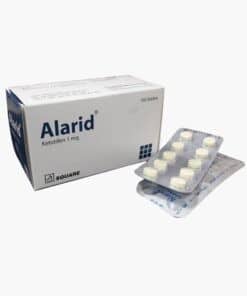

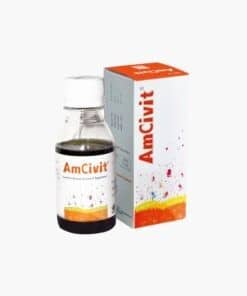
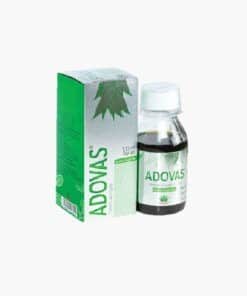

Reviews
There are no reviews yet.